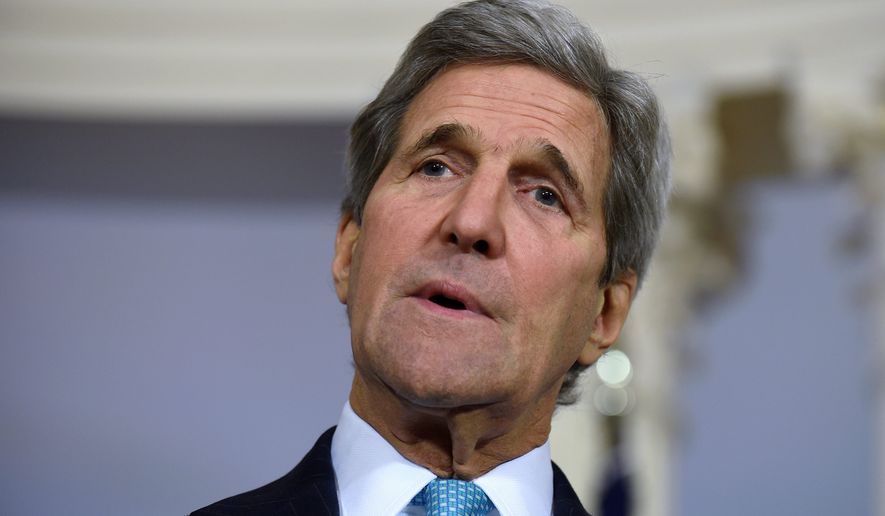Secretary of State John F. Kerry will miss a deadline set by Congress for deciding whether atrocities carried out against Christians and other religious minorities by the Islamic State terror group in Syria and Iraq should be officially declared a “genocide.”
Despite rising pressure from activists for official protection for the region’s embattled Christian communities, State Department spokesman Mark Toner told reporters Wednesday that Mr. Kerry would not decide before the March 17 deadline set by lawmakers.
Saying a decision will be coming “soon,” Mr. Toner said Mr. Kerry “recognizes the seriousness” of atrocities that have been committed, but that department officials, intelligence agencies and non-governmental organizations are still providing information on the matter.
“If this delays the process, it’s worth it,” he added.
The delay is likely to anger pro-Christian groups, who lobbied lawmakers to include a provision in the omnibus spending bill passed late last year mandating the State Department to make a determination. In addition, the House on Monday approved on a 393-0 vote a resolution declaring the atrocities targeting Christians and other religious and ethnic minorities in the Middle East constitute a genocide.
The Obama administration has been engaged in a heated internal debate since 2014 over whether “genocide” is the correct term to describe the situation, with a designation bringing requirements under international law to act.
By most estimates, there were between roughly 1.5 and 2 million Christians of various denominations in Iraq in 2003. Today, there are fewer than 300,000.
A report last week by the Knights of Columbus — the world’s largest Catholic fraternal organization — found that 1,100 Christians have been killed in Iraq since 2003, targeted first by al Qaeda in Iraq and Shiite militia groups and more recently by the Islamic State.
Prominent international figures, including Pope Francis and Democratic presidential front-runner Hillary Clinton, have argued that the situation amounts to genocide.
Knights of Columbus CEO Carl Anderson said Wednesday that his group was “encouraged” that Mr. Kerry was weighing the question carefully, but said the case for an Islamic State genocide against Christians and other Middle East religious minorities was “overwhelming.”
“We reiterate our strong concern that we have heard from many sources in the region that to exclude any minority group from a genocide declaration may greatly increase the danger to the excluded group, making them a target for a new wave of killings,” Mr. Anderson said in a statement.
Mr. Kerry, himself, came close to making the declaration in August of 2014, shortly after the Islamic State surprised the world by capturing the Iraqi city of Mosul, a move that resulted in the rapid expulsion of some 60,000 Christians.
SEE ALSO: Ukraine’s progress slowed by ‘dirty money,’ simmering conflict
When the terror group subsequently surrounded tens of thousands of Yazidis — an ethno-religious group whose Persian-influenced traditions pre-date Islam — on nearby Mount Sinjar, Mr. Kerry said the treatment of both Yazidi and Christian minorities bore “all the warning signs and hallmarks of a genocide.”
But when pressed more recently on why the Obama administration has steered away from using the word, White House spokesman Josh Earnest told reporters that the term carries “legal ramifications” and that lawyers were still considering whether it could be “properly applied.”
• Guy Taylor can be reached at gtaylor@washingtontimes.com.




Please read our comment policy before commenting.